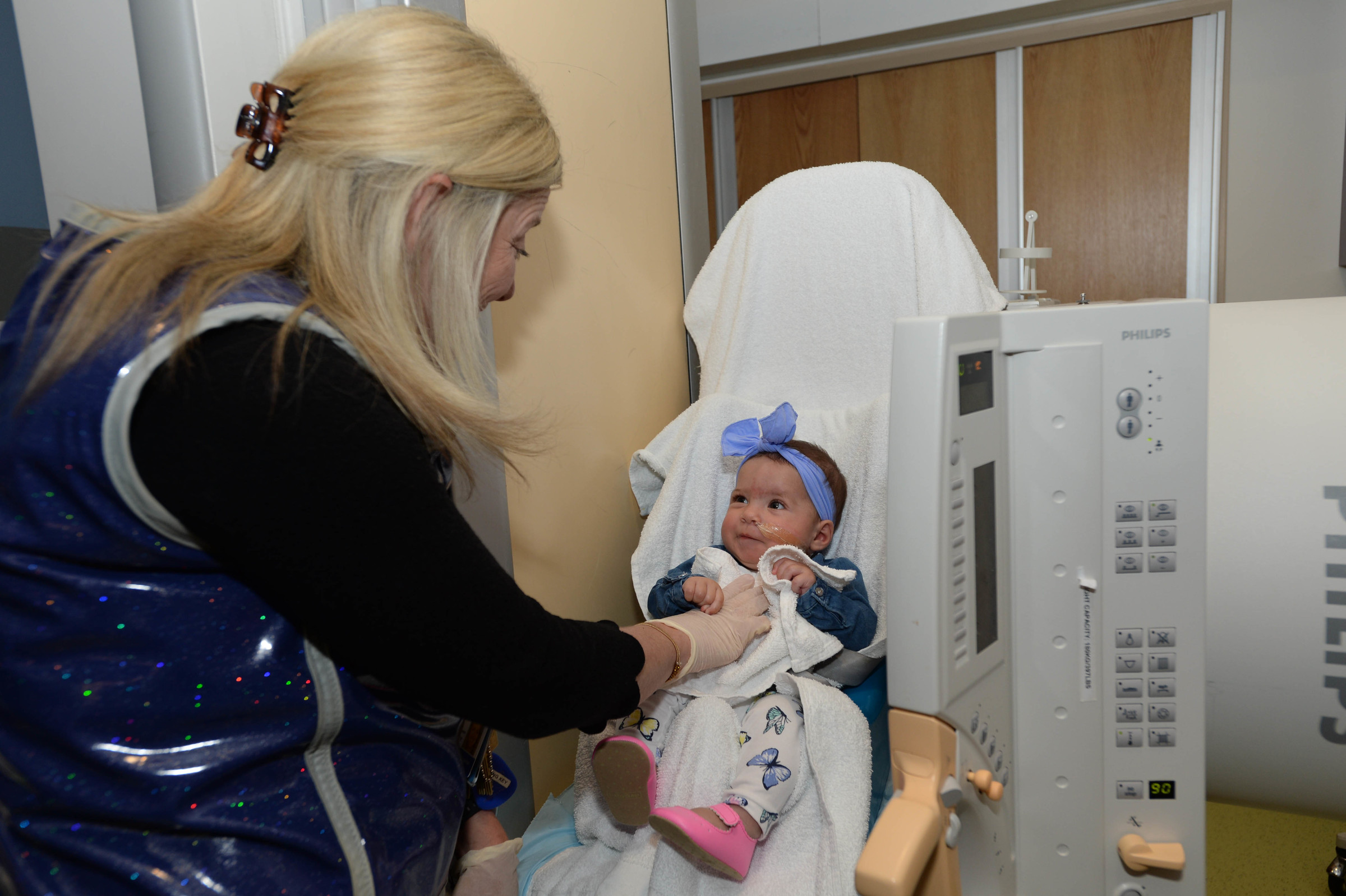The modified barium swallow study: What’s it like?

If your child has dysphagia or another swallowing problem, their physician may recommend a “swallow study.” Technically called a modified barium swallow study, this test can help clinicians determine whether a child is aspirating, which means that food or liquid is entering their lungs when they try to eat or drink. “This study is completely voluntary in that we can’t force a child to eat during the test, but it does give us a better picture of whether kids are feeding safely,” explains Kara Larson, a speech-language pathologist in the Aerodigestive Center and Feeding and Swallowing Program at Boston Children’s Hospital.
To learn more, follow along with her patient Mia as she undergoes a modified barium swallow study.
Learn more about the Aerodigestive Center and Feeding and Swallowing Program.
Related Posts :
-

From swallowing troubles to doughnuts: How vascular ring treatment helped Everly
By the time she was a year old, Everly Parisee was frequently wheezing. Then she had trouble swallowing foods. Her ...
-

New insight into the effects of PPIs in children
Proton-pump inhibitors (PPIs) are frequently prescribed to suppress stomach acid in patients with gastroesophageal reflux disease (GERD). Prescribing rates of ...
-

How transnasal endoscopy got Jamie back on the golf course
Jamie is like most 15-year-olds — he goes to school, hangs out with his friends, and still makes time to get ...
-

How Robin sequence paved a dad’s road to the Boston Marathon: Chad and Izzy’s story
Go to any marathon starting line and you’re bound to find someone who was “never a runner” until something — ...





